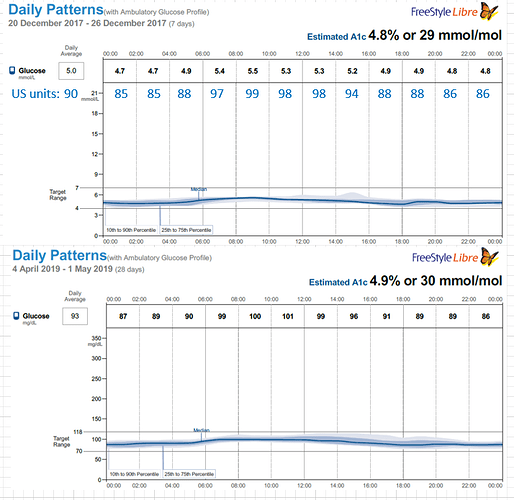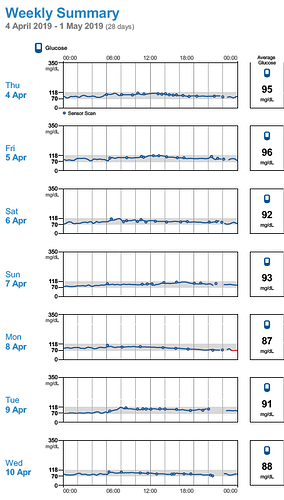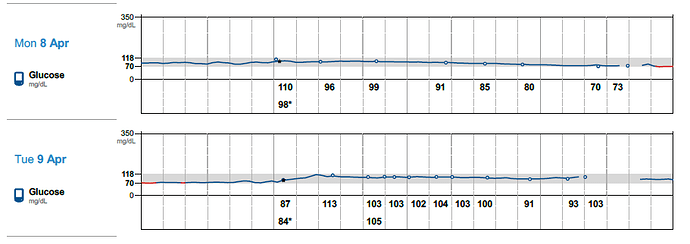Hi all, i have been doing keto for over 1.5 yrs now, and i did my bloodwork a few weeks ago for a general checkup.
My LDL/HDL is overall pretty good (LDL a little high, but that was to be expected).
CAC score was also good.
What was more puzzling to me was my HOMA IR and HBA1c score.
Before starting keto my HBA1C was hovering around 5%.
My HOMA IR was around 0.95
My latest bloodwork is showing that:
HBA1C is 5.5%
HOMA IR is now 0.65
I have used a CGM on and off as well and my usual daily average is around 105, with no spikes above 115, and usually starting the day around 110 and ending around 95.
Before i started keto my blood sugar was 80… then would spike to 120-140 during meals and come back down to 80 a few hrs after meals.
Is this something i should be worried about? Why would my HBA1C be higher… I have spoken to my doctor who has also said that the physiological insulin resistance is probably at play which is why my blood sugar in a rested state is higher than it used to be, as well as the “dawn” effect as to why it’s higher in the morning.
My only concern is that the HBA1C has risen a fairly significant amount, which he did say to watch, but considering i have been doing keto for such a long time… i would think my fasting blood sugar would be lower than what the CGM/HBA1C is showing.
Has anyone else had this problem before (after doing keto for 1yr +).




 To each her/his own.
To each her/his own.